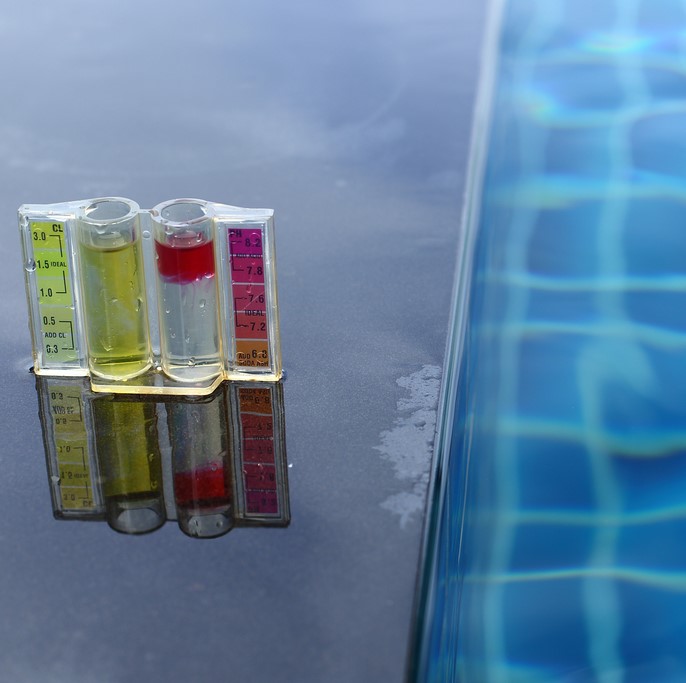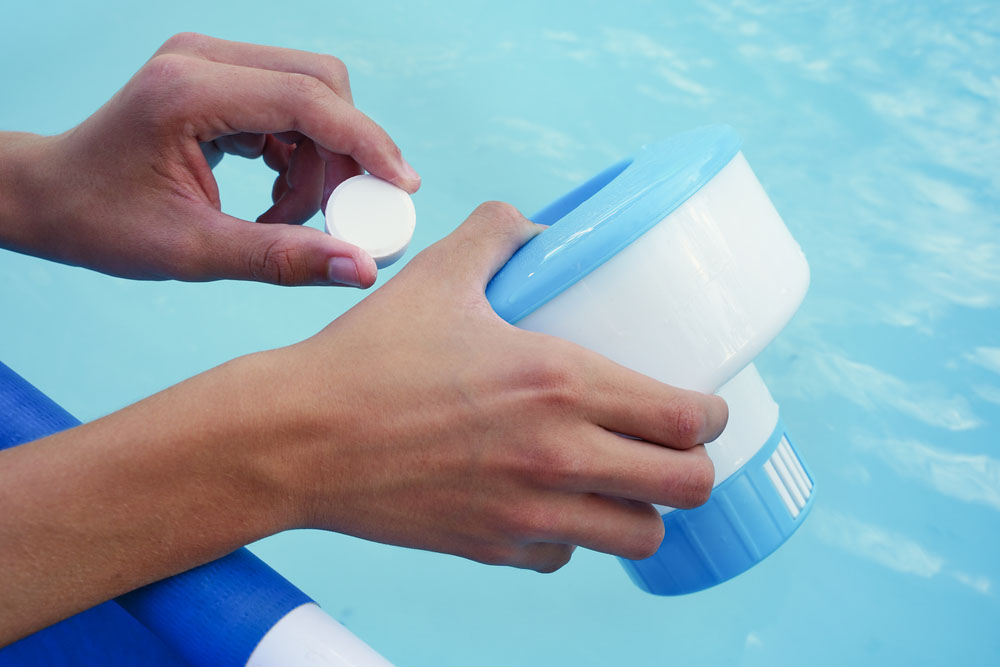Swimming Pool Inspection Services
The inspection we perform is a visual and operational inspection of the pool and equipment. After we complete the pool inspection, we provide a written report indicating what repairs may be needed, including cost projection or referrals to recommended companies.
Residential Pool Inspection Services Cypress, Houston & Katy
We do not make any repairs during an inspection nor do we perform any pressure testing of plumbing lines as part of an inspection. If there is reason to suspect underground lines are leaking we would make the recommendation to perform pressure testing. We do not disassemble equipment.
Please contact us today to schedule your pool inspection.
What is a Pool Inspection?
A pool inspection is a process during which trained swimming pool inspectors examine your pool to identify any potential hazards, defects, or necessary repairs. They then advise you of your repair options for any problems discovered while they inspect your pool.
The pool inspector will examine your pool and spa visually and operationally. For the visual part of the pool and spa inspection, the swimming pool inspector will look over all pool equipment, the electrical supply and pool lighting, and any safety issues immediately surrounding your swimming pool and the pool deck. During the operational or mechanical part of the pool and spa inspection, the pool inspector will monitor the essential equipment of your pool or spa as it runs.
After the pool inspection, we provide a detailed written report with feedback on all elements of your pool. The report will include each item of the pool that was inspected, information about the condition of each item and when it should be replaced, and notes indicating what repairs may be needed, including cost projection or referrals to recommended companies when necessary.
What is Included in a Pool and Spa Inspection?
Professional pool and spa inspection usually includes a comprehensive evaluation of your swimming pool or spa’s structure, equipment, and safety features. A pool inspection covers many things. If you ask your pool inspector, they can tell you everything that will be included in their inspection.
Common elements of a pool and spa inspection include:
- assessing the swimming pool surfaces
- assessing if all local or state safety regulations and anti-drowning safety measures have been followed
- evaluating the overall maintenance and condition of your pool and its components
- examining the plumbing and filtration systems
- inspecting all safety barriers
- looking for evidence of corrosion in saltwater pools
Other standard components included in the inspection are:
- blower
- filter
- heater
- pool covers that are permanently installed
- pressure gauge
- skimmer
- supply lines
- time-based controls
- venting
Swimming Pool Safety
Pool inspectors will check for a variety of swimming pool safety issues. They will check that all electrical wires are far from the pool and that electrical components are adequately housed. They will assess walkways around the pool and the deck for potential slipping or tripping hazards.
As part of the safety check of the pool inspection, all fencing and latches, if present, will be checked to ensure they are functioning correctly and fences are of the appropriate height so that children cannot get into the pool unexpectedly.
Swimming pool owners should be aware that ensuring your outdoor space adheres to local pool laws and ordinances is not part of the pool inspection. However, if you ask, your pool inspector may know where to find that information.
Inspecting Pool Interior
The type of material used for the swimming pool interior determines what the inspector will look for.
Some swimming pools have vinyl liners to help contain water inside the pool and ensure water does not seep out. Pools with vinyl liners will be inspected for tears in the lining.
Other pools will have been finished with one of several types of plaster for its interior. The swimming pool inspector will examine the plaster to ensure no cracks could lead to a severe problem. The inspector will also inspect any decorative or functional tiles inside the swimming pool.
Inspecting Pool Lighting
If a swimming pool has lights inside, the inspector will check that all lights function properly, whether LED lights or old-fashioned light bulbs. The insides of the pool lighting fixtures will be inspected for condensation, which can lead to mildew or mold issues in the future if not taken care of.
Inspecting Pool Decking and Tile Around Swimming Pool
The inspector will check the swimming pool’s decking and coping as part of the pool inspection. The pool’s decking is any hard surface beyond the coping, directly around the swimming pool. The coping or deck is made of a rigid material like brick, concrete, or natural stone, and the inspector will check for any chips that can cause tripping hazards or debris in the swimming pool.
The pool inspector will ensure the pool decking is in good condition, and the deck will be checked for damage, stains, proper drainage for rainfall, and any pitches or tilts in the decking. They will also look for drains to effectively route water away from the house and make sure that water splashes out of the pool drains effectively.
We will check out the “coping,” the area directly around the pool. Typically, it is 12-18 inches wide and made of hard material like concrete, brick, or natural stone. Chips in the coping can lead to tripping hazards or debris in the pool.
The decking is any hard surface beyond the coping. You should have that inspected for damage and stains, just like the rest of the pool area. Ensure the inspector checks for proper drainage for rainfall and any tilts or pitches in the decking.
The inspector will check to ensure the pool decking is in good condition. Also, when the water splashes out of the pool, it drains efficiently. Additionally, they will look for the drains to route the water away from the house effectively.
Inspecting Pool Equipment
The swimming pool inspector will look over each piece of equipment to ensure it is fully functional and in good condition. Pool pumps will be checked to confirm that they are working, have solid wiring, and are appropriately secured. The inspector will ensure the pool filter is solidly in place, all valves leading to the filter function properly, and the filter sanitizes the pool properly. If the pool has a heater, the inspector will make sure it is the proper size for the pool and verify it is working.
What is Not Included in Pool and Spa Inspections?
We do not make any repairs during pool and spa inspections, nor do we perform any pressure testing of plumbing lines as part of an inspection. If there is reason to suspect underground lines are leaking, we would recommend performing pressure testing. We do not disassemble any equipment as part of a pool inspection. The pool inspection does not include testing of water quality or anything not already working properly or advice on pool suitability and accessories.
Water Quality Testing
Water quality testing is not included in a swimming pool inspection; however, your inspector can recommend someone who can test your pool’s water quality. A professional swimming pool technician with a pool care company typically performs water quality testing.
Pool Features
A swimming pool inspector only advises on the suitability of a pool if swimming pool owners ask whether they should add swimming pool features like slides and diving boards to their pools.


Who Needs Swimming Pool Inspections?
Home buyers and homeowners need swimming pool inspections so they can be aware of the condition of the swimming pool and its mechanical processes. Thorough pool inspections are essential because they can detect issues that could become costly to repair. A pool inspection can identify current and future maintenance needs and show any hidden problems.
Swimming pool owners will benefit significantly from regular pool inspections. Regular inspections can identify issues when they are minor, which allows for prompt repairs that will prevent problems from becoming severe.
If you notice any of these warning signs, contact a professional swimming pool inspector to take a closer look:
- cracks in the plaster walls
- electrical issues like improperly installed junction boxes, missing ground-fault circuit interrupters, or burnt-out underwater bulbs
- leaks
- slippery pool decks
- torn liner

Most Common Pool & Spa Problems Found During Pool Inspections
During pool inspections, inspectors often discover one or more of these common issues:
- bad or missing ground-fault circuit interrupters (GFCIs)
- damaged or deteriorating heaters
- damaged or missing lights
- dirty or clogged filters
- equipment leaks
- improperly bonded metal around the swimming pool
- improperly installed junction boxes
- improperly vented heaters
- no anti-vortex drain covers
- noncompliance with swimming pool and spa anti-drowning safety features
- old-style (and potentially unsafe) junction boxes
- shell or plaster that is damaged or deteriorating
- water levels indicating geological issues
How Much Does a Pool Inspection Cost?
The cost of a pool inspection depends on several factors, including the city and state you live in. the size of the pool, and the condition of the pool. Typical pool inspection costs range from $125 to $250 but can be even higher, especially if any special equipment is installed.
What Could Go Wrong If You Skip the Inspection
Swimming pools, hot tubs, and spas can provide enjoyment and add value to your home, but they can also become expensive to repair if potential issues need to be identified early. Proper, routine maintenance and regular pool inspections can help keep your pool or spa in excellent condition and help prevent and identify any problems that would make your pool unsafe, cause severe and expensive repair issues, or lead to equipment malfunctions.
What if the Pool Inspector Finds a Problem?
The comprehensive written inspection report will detail any problems the swimming pool inspector finds. The report will have the inspector’s observations and assessments of all pool equipment and elements and provide recommendations for any essential actions, such as maintenance or repairs, that might be necessary.
Lone Star Pool Services for All Your Swimming Pool Needs
Professional residential pool inspection services from Lone Star Pool Services will identify if your pool and equipment are in optimum condition or if any repairs are needed.
Call Lone Star Residential Pool Inspection Services in Cypress, Houston, & Katy, Texas, at 832-928-3017 to learn more about our professional pool inspections and other pool maintenance services.
